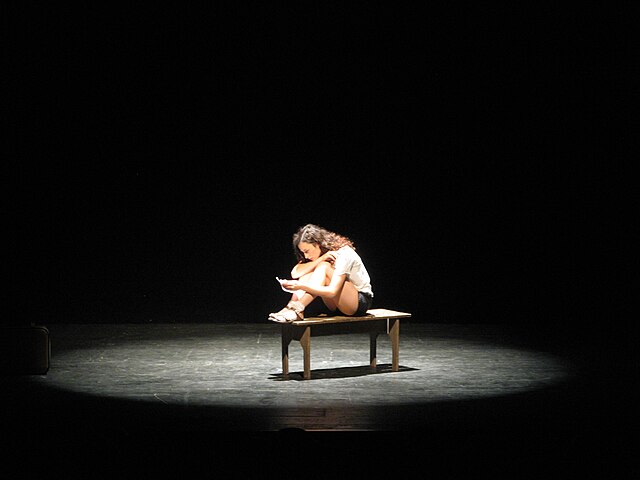
Re-Imagining Romance
5 novels And Films That Challenge The Notion Of ‘Happily Ever After’
The literary and cinematic landscape is awash with dazzling examples of love triumphing over all – think Mr Darcy and Elizabeth Bennett’s thrilling union at the end of Jane Austen’s Pride and Prejudice. But among the ‘happily ever afters’, a subset of works challenges this traditional narrative arc, defying audience expectations. The following novels and films prove that just because romantic love doesn’t always win, it doesn’t mean they are any less powerful.
1. Gone Girl, by Gillian Flynn (novel and film)
Gone Girl captivated millions of readers, flying off shelves when it was first published in 2012. The novel challenges the idea of a perfect marriage by unravelling the facade of domestic bliss through a gripping narrative of deception, manipulation, and hidden motives.
The focal characters, Nick and Amy, are both unreliable narrators. Amy’s use of dark humour to obscure her genuine intentions further misleads the reader. But beneath the humour and thrilling twists and turns is a fascinating exploration of a love gone awry and how two people can destroy each other through a toxic cycle of manipulation.
2. Normal People by Sally Rooney, (novel and BBC TV series)
Sally Rooney’s Normal People offers a nuanced and touching portrayal of the tumultuous relationship between young adults, Marianne, and Connell, as they navigate love and intimacy. Their on-off relationship – or ‘situationship’, as it might now be called – explores the complexities of power dynamics, class, and emotional vulnerability.
The TV adaptation helped catapult Paul Mescal and Daisy Edgar-Jones to fame and was essential lockdown viewing for many of us, with a staggering 62.7 million of us tuning in.
3. Revolutionary Road, by Richard Yates (novel and film)
Richard Yates’ 1961 novel is a haunting exploration of suburban disillusionment and the erosion of dreams. Set in 1950s America, Yates masterfully delves into the existential crisis of Frank and April Wheeler, a couple trapped in the suffocating conformity of suburban life.
Through vivid prose and intricate character studies, Yates exposes the dissonance between societal experiences and individual aspirations. The themes of identity, alienation, and the quest for authenticity offer a poignant commentary on the human condition. The 2008 film adaptation saw Leonardo DiCaprio and Kate Winslet reunite eleven years after they first played star-crossed lovers Jack and Rose in the James Cameron classic Titanic.
4. The Time Traveller’s Wife, by Audrey Niffenegger (book, film, and HBO series)
“Don’t you think it’s better to be extremely happy for a short while, even if you lose it, than to be just okay for your whole life?”
In The Time Traveler’s Wife, Audrey Niffenegger challenges conventional romantic ideals by exploring the complexities of love and loss through Henry and Clare’s unconventional relationship.
Their relationship in the novel is defined by Henry’s involuntary time-travelling, presenting challenges as Clare is forced to cope with his sporadic disappearances and reappearances across different timelines, testing their love’s endurance.
5) One Day, by David Nicholls (book, film, and Netflix series)
David Nicholls’ One Day traces the evolving relationship of friends, Dexter and Emma, over two decades. After meeting on the night of their graduation from the University of Edinburgh, they continue to reconnect on the same day each year: July 15, St Swithin’s Day.
Exploring the role of missed opportunities and second chances, the novel weaves together the themes of love, friendship, and the passage of time. For Emma and Dexter, the course of true love does not run smoothly. As they weave in and out of each other’s lives, Nicholls explores everything from addiction to grief and regret. In 2011, it was made into a major motion picture starring Jim Sturgess and Anne Hathaway. More recently, it’s been adapted into a smash-hit Netflix series, starring Ambika Mod (This is Going To Hurt) and Leo Woodall (White Lotus). The series is no less poignant than Nicholls’ timeless novel, resonating deeply with viewers through its bittersweet message.
If you have an interest in studying English or English Literature, Oxford Open Learning offer you the chance to do so at a variety of levels, listed below. You can also Contact Us via the link here.
